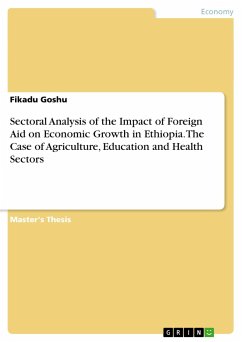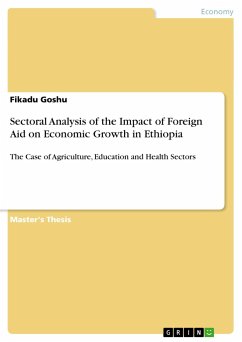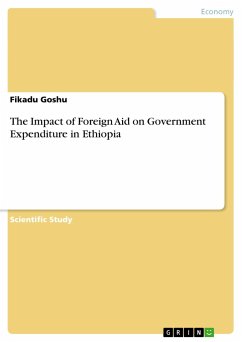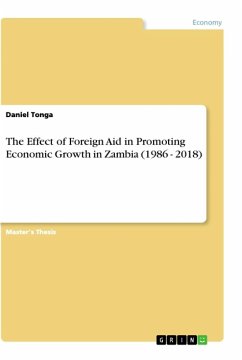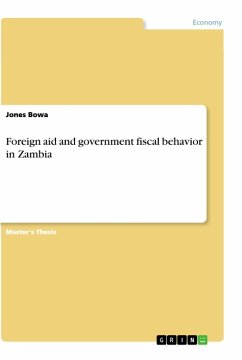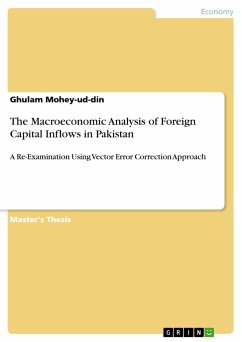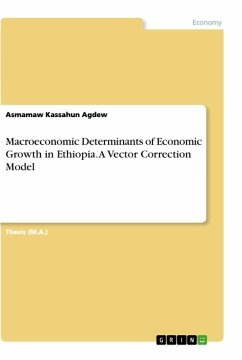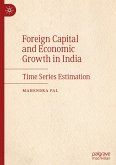Master's Thesis from the year 2014 in the subject Economics - Macro-economics, general, grade: First grade, Wollega University (College of business and Economics), course: Development Economics, language: English, abstract: This study has examined sectoral analysis of the impact of foreign aid on aggregate and sectoral economic growth in Ethiopia over the period 1981 to 2012 using multivariate Vector auto regression analysis. All the necessary time series tests such as stationary test, co-integration test, weak exiguity test, vector error correction, and causality test in vector error correction model and the like are conducted. The empirical result from the growth equation shows that aid has a significant positive impact on educational sector GDP in the long run. On the other hand, foreign aid has positive but insignificant impact on real GDP, agriculture GDP, and health sector GDP of Ethiopia. Foreign aid is effective in enhancing growth at aggregate level of the economy in general and education sector of the economy of Ethiopia in particular. The test result of the study result reveals that there is a bi-directional causal relationship between educational GDP and educational foreign aid in Ethiopia. However, the agricultural and health sector does not show any bi-directional causality with their respective sector aid. This implies that all aid allocated for sectors is ineffective all in all in achieving its objectives of economic development. Therefore, aid recipient country like Ethiopia has to work how to enhance the domestic revenue raising capacity of the country which is at the heart of the mechanism to meet the capital required for the economy in times of short falls and ineffectiveness of external resources.
Hinweis: Dieser Artikel kann nur an eine deutsche Lieferadresse ausgeliefert werden.
Hinweis: Dieser Artikel kann nur an eine deutsche Lieferadresse ausgeliefert werden.

